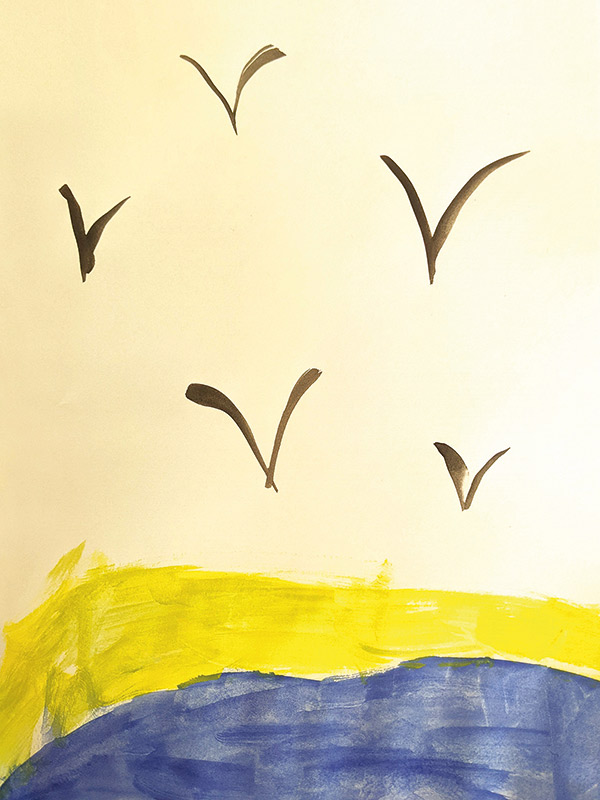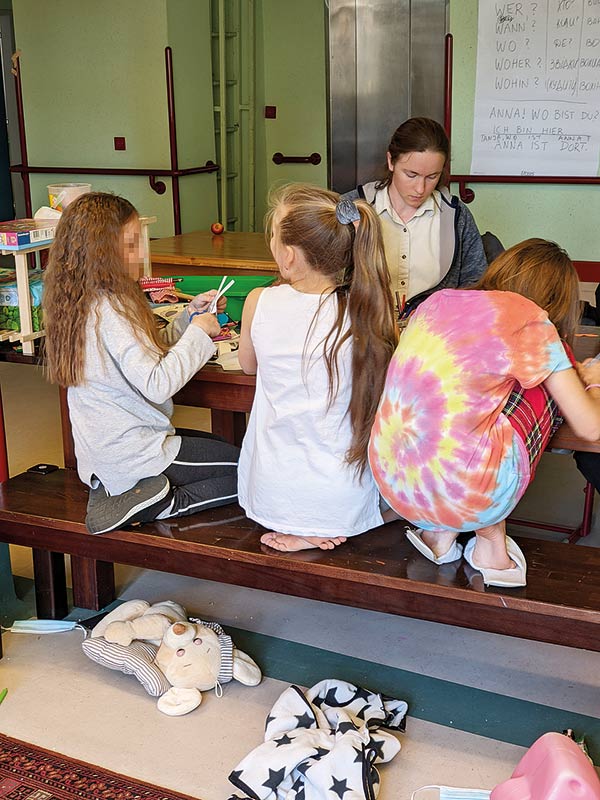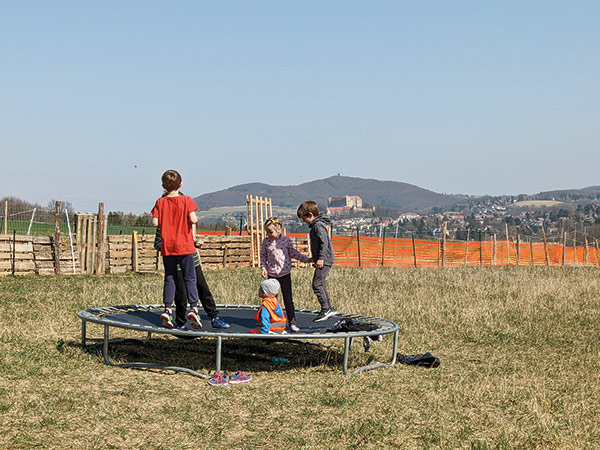Subtotal: $
Checkout-

Stable Condition
-

Editors’ Picks: “In the Margins”
-

Editors’ Picks: “The Genesis of Gender”
-

Editors’ Picks: “Sea of Tranquility”
-

Poem: “Stopping By with Flowers”
-

Poem: “Sugarcane Memories”
-

Poem: “Sonnet Addressed to George Oppen, Arlington National Cemetery”
-

Diaconía Paraguay
-

Winners of the Second Annual Rhina Espaillat Poetry Award
-

Forum: Letters from Readers
-

Charles de Foucauld
-

Covering the Cover: Hope in Apocalypse
-

War Is Worse Than Almost Anything
-

The Last Battle, Revisited
-

The Problem with Nuclear Deterrence
-

A Haven of Olives
-

Book Tour: Time for an Intervention
-

Hoping for Doomsday
-

Radical Hope
-

The Sermon of the Wolf
-

The New Malthusians
-

The Spiritual Roots of Climate Crisis
-

Tradition and Disruption
-

The Apocalyptic Visions of Wassily Kandinsky
-

War and the Church in Ukraine
-

The Griefs of Childhood
-

Everything Will Not Be OK
-

Jesus and the Future of the Earth
-

The Other Side of Revelation
-

American Apocalypse
-

Syria’s Seed Planters
-

At the End of the Ages Is a Song

Searching for Safety
In a refugee center outside Vienna, Ukrainian families wonder what comes next.
By Rosalind Stevenson
June 11, 2022
Next Article:
Explore Other Articles:
Plough’s graphic designer, Rosalind Stevenson, and her husband, Seth, spent the month of April in Neulengbach, Austria, working at a newly designated center for refugees from Ukraine. She reports:
Week One: This refugee center is a large complex of five buildings that have been mostly empty for the past few years. The first two buildings are now occupied; the others would need some fixing up before they could be lived in. There are approximately two hundred refugees here now, mostly women and children but also some men. A few of the men got out before it became mandatory to stay. Others were allowed to leave because they had disabilities or were fathers of large families. But most of the families we’ve had contact with had to leave their fathers and husbands behind.
When the first refugees arrived, there was an outpouring of support from the locality, in the form of donations and volunteers, but little oversight or organization. By the time we got here, a few weeks later, it was somewhat more organized, at least in terms of dealing with the donations, and the quantity has slowed down a little. Seth is setting up shelving to store it all, and putting donated furniture away, often working with the older boys and men from the center.

Artwork by a Ukrainian refugee child at the center in Neulengbach All photographs courtesy of Rosalind Stevenson
Upstairs, two rooms have been set aside for the kids to use, with donated furniture, toys, and games. But no one was organizing any activities for them, and with their fathers absent and their mothers overwhelmed, they would mostly roam around unsupervised or sack out with their phones. So I now spend the mornings doing projects and crafts with whoever is interested. Sometimes we’ll see them at the end of the day on a Zoom call with their dads, showing them the art projects they made. The kids also have online classes during the day at certain times – some of their teachers stayed behind and are now conducting classes remotely for their scattered students.
Week Two: We got our outdoor play area up and running this week, with a swing set, slide, sandbox, mini soccer, and a volleyball net, as well as a few kiddie picnic tables and some benches for the parents. It is being heavily used already, and when the weather is nice, we generally get a game going in the afternoon.
As we get to know more of the refugees individually, we hear more of their stories:
Irina* is a mother of two who has become a spokesperson and leader for the refugees at Neulengbach, since she’s the only one who can speak German well and communicate their needs. She tells us how suddenly life changed – for the past eight years she had been focusing on raising her children and securing their education: then overnight the country was at war, and they had to flee their home. Now she has almost no time for relaxing or being with her kids, as she is run off her feet sorting out the hundreds of questions that arise every day. She does everything from administering Covid tests to enrolling kids in school, helping people with documentation, and being a go-between with the mayor and local officials. She gets as little as two hours of sleep a night.

The author helping children with arts and crafts at the center
Irina has asked me if I could start helping one mom who has six young children and is never managing to get out of the little apartment they’re in. The kids are crammed in, four to a room in very small spaces, and sometimes spend all day in there. The mom doesn’t know many people at the center and has no real support network, so I have been taking one of the children, a two-year-old girl, out for a walk and some outdoor play each day.
Katerina is a mother who has started taking English lessons with me. She comes from Lviv, and her husband and twenty-five-year-old daughter are still there, defending their country. She talks to them often, but they aren’t allowed to give out any details, just confirmation that they’re alive. She finds it very hard to think about anything except what is happening back home. Halfway through a lesson her phone buzzes, and she shows me that it is an air raid alarm in Ukraine. She signs with her hands that she is praying, and then wants to continue learning. Eventually an all-clear comes. But you can imagine how hard it is to focus on daily life when this is happening to family members. We tell her that we came all the way from New York because our church is concerned about the situation and wants to help, and she expresses her thanks.
Anya, a nineteen-year-old, comes from a town just outside Kyiv. She describes how, despite the rumors, no one believed that a war could happen in their peaceful home. It was only when they were woken by the sound of bombs early one morning that they were forced to accept the reality, and flee.
Week Three: Most of the school-aged Ukrainian children have started to attend the local school in Neulengbach. This is exciting for the kids and they are very happy, but there are challenges too. The obvious problem is that most do not speak any German, and their parents cannot help with homework or even communicate with the teachers. And of course, the kids need a lot of school supplies, lunchboxes, good shoes, pens and pencils. The school does provide some basics, but for much of it, they must rely on donations. I have great respect for the teachers who are finding ways to make a place of welcome.

Children playing outside the center
Despite the language barrier, Seth has become friends with most of the men here, and one morning one of the fathers shows him a video someone just sent from a location near his home. The clip is the aftermath of a rocket attack on a train station in the town of Kramatorsk. When we check BBC later in the morning, we find that it is headline news, and that nearly fifty people have died there, most of whom were trying to flee the Eastern provinces. This and other similar incidents are reminders of the reality of the war, and how close it is to the people we’re with every day.
For these families, there is no getting away from the war, even if they are physically safe at present. Husbands and fathers and other relatives are in constant danger; the future is completely unknown. Their most basic material needs might be addressed at the moment, but there is a lack of social workers, or someone to help them figure out the next step. Translation technology enables us to connect and hear their stories, albeit one sentence at a time. Each story makes us thankful for every child and family who has made it this far. But how many more are still in the center of a war zone?
* Names have been changed throughout this article.
Already a subscriber? Sign in
Try 3 months of unlimited access. Start your FREE TRIAL today. Cancel anytime.










































